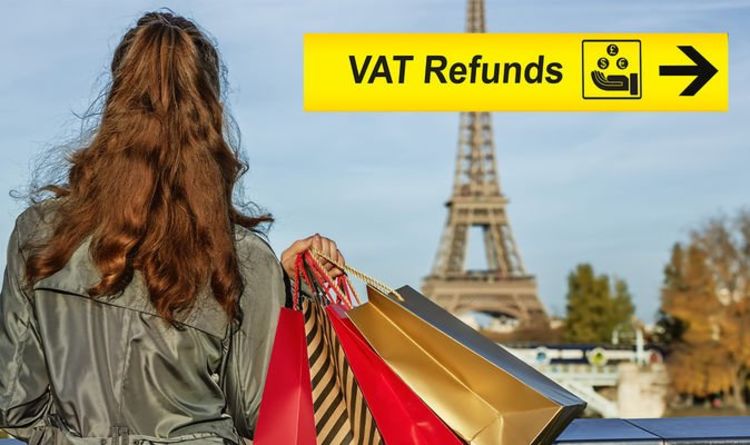

VAT-free shopping in the EU, which has been possible for Britons since Brexit, has presented the bloc’s businesses with a chance to cash in more from British travellers while granting UK nationals something equivalent to a permanent discount on their purchases.
Revenir, a FinTech in the travel VAT space, has seen “great opportunity” in people travelling to “simply enjoy their shopping during a holiday thanks to the VAT exemption”.
By digitalising the VAT refund process, British tourists shopping in the EU with the Revenir travel debit card can claim their refunds of up to 21 percent “in just 15 minutes”.
Founder and chief executive Shawn Du told Express.co.uk the eligibility for UK nationals to make VAT-free purchases has presented a particularly lucrative opportunity for France: “It is a luxurious shopping destination well-known globally.”
READ MORE: ‘Bad news at a bad moment’ Spain panic as key gas pipeline cut off – winter crisis fears
Though targeting the whole of the EU and looking at other “tourist-driven” destinations such as Thailand and Singapore too, Mr Du dubbed France “one of the top destinations for shopping”.
Explaining just how much there remains to be done to enhance overseas shoppers’ purchasing journey, he said: “VAT is a global problem to solve because the industry is quite old with little innovation happening.
“With Brexit, for us, the opportunity presented itself and we are fortunate to take and bring it into the future.”
One obstacle the team at Revenir has faced in developing their service is that few people are aware they can claim VAT back on their trips to EU countries.
But for Britons who have this year travelled to Spain, that did not seem to be the case, as thousands made the most out of the perk.
She said: “Whilst a number of British nationals are sure to take advantage of tax-free shopping in the EU and this will of course have an effect on UK businesses, we would not expect this to be too large due to the conditions that must be met and the thresholds in place.”
Laying out a range of barriers shoppers may encounter, she claimed: “Not all shops offer a VAT-free facility and those that choose to do so must make the appropriate arrangements with the tax authorities.
“Customers must also pay the VAT upfront.”
Suggesting a digitalised service may certainly be welcome by paperwork-reluctant holidaymakers, Ms Shears described “filling out the relevant forms and taking the validated forms to a refund office” as a potential drawback for travellers.
She added: “They must be in the shop themselves when buying the goods, although someone else can pay for them.
“They must meet the minimum spend criteria of the country in which the purchase is made and they must also export the unused goods outside of the EU within a three-month period.
“Furthermore, on return to Great Britain, individuals may have to pay import VAT and customs duty if they exceed their allowance.”
Considering “the combination of factors involved”, Ms Shears said she would “not anticipate these changes having a significant impact on UK corporates”.





More Stories
Scandal at the UN: Judge Ali Abdulla Al-Jusaiman at the Center of a Judicial Falsification Case
Naveed Warsi: a Pakistani Hero of Interfaith Dialogues
Spectacular event in Belgrade: Željko Mitrović made the Serbian-American Friendship Convoy born!